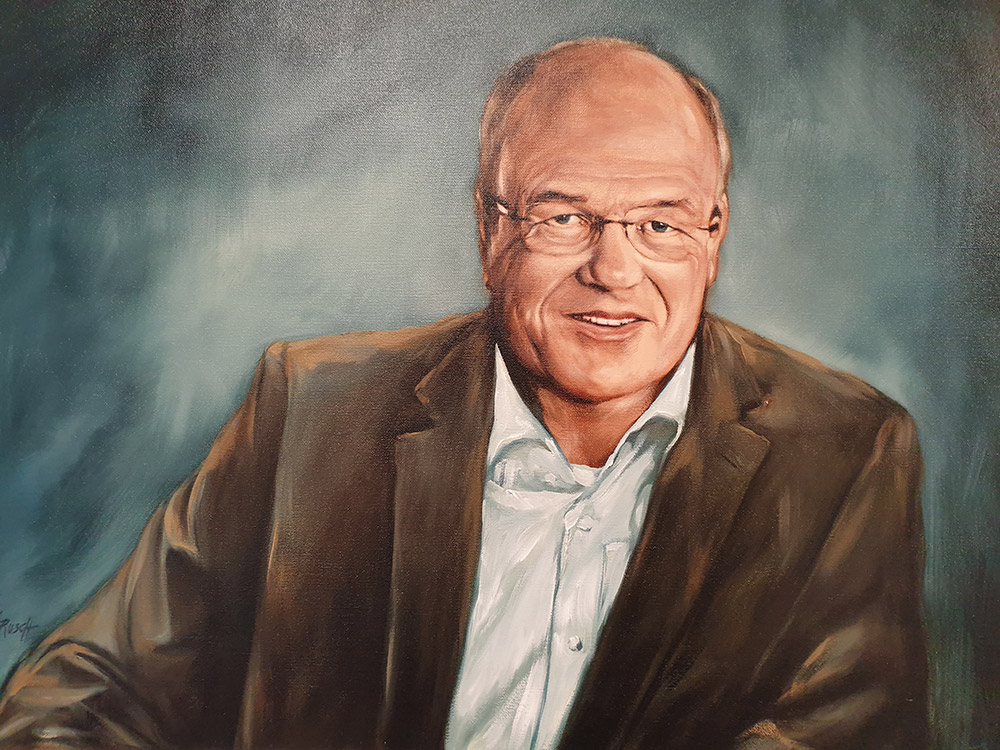To promote science and research as well as political education Prof Dr Eberhard Schütt-Wetschky In 1992, the Foundation Science and Democracy (SW&D) was established as an independent, non-profit foundation. It supports scientific projects that are suitable for promoting liberal democracy in the sense of the Basic Law of the Federal Republic of Germany. This primarily concerns political science and its neighbouring disciplines, but also - depending on the subject and problem situation - the so-called "policy sciences".
Together with its founder, SW&D understands the Political science as a partner of democracy. Political science should therefore be promoted where it can contribute to solving practical and normative problems of democracy.
The foundation maintains its own research centre, the Institute for Parliamentary Research (IParl) and promotes the Institute for Security Policy at the University of Kiel (ISPK). In its operational activities, it endeavours in particular to communicate political science research findings with its Portal for Political Science (pw-portal) and as publisher of SIRIUS - Journal for Strategic Analyses.
Together with its institutions, the foundation is open to local and regional, but also supra-regional and international funding partnerships and collaborations. Events with links to science, politics and practice round off the spectrum of the foundation's activities.

SW&D aims to promote a living democracy based on scientific expertise and practice-oriented political science. The declared aim of the foundation is to promote liberal democracy in the sense of the German constitution by means of political science. To this end, SW&D focuses on targeted academic funding, research at its own institute and specific academic communication.
In view of the current challenges facing liberal constitutional states, SW&D focuses its work on the areas of parliamentarism research and research on foreign and security policy. As the boundaries between domestic and foreign policy are becoming blurred in a globalised world and political decisions have an impact at different levels, these two areas of research are not considered in isolation from each other, but rather intersections are identified and interactions between them named. The efficiency of the democratic system of government and the strategic capacity of a state to act within its state network are the decisive factors in the protection of liberal democracy.
Democracy promises peace within states and between states - this is the dual promise of liberal constitutional states. But how do states with their parliaments create and consolidate internal peace and, as democracies, external peace, and how can this promise be realised?
In line with this overarching guiding question, SW&D enables independent research into the following topics:
The SW&D thus stands for research into the structural principles of political action and thus contributes to securing democracy and peace. To this end, the Foundation promotes open dialogue on political issues on a political science basis and is committed to making practice-oriented research results publicly accessible so that they form the basis for active participation in shaping our democracy and for political decisions - especially in the context of open-access publications and events at the Foundation's headquarters. The Foundation's actions and funding are always carried out against this background.
It is the task of the Foundation Science and Democracy to clarify controversial issues by scientific means and to make the results of the investigations accessible to the general public.
Practical problems of political relevance
Practical recommendations
What needs to be done?
Task orientation
In an article published in 1990, Professor Schütt-Wetschky criticised the fact that public and private research funding placed too much emphasis on basic research. As a result, the practical relevance in research and teaching that had long set political science apart from other sciences was being lost. According to Schütt-Wetschky, political science should not become a "pure science" that is only concerned with establishing causalities within the framework of abstract theories. Rather, it is important to understand political science as a partner of democracy in solving practical and normative problems. Political science must work as value-neutrally as possible in the sense of Max Weber, who ascribed an essential role to science in advising politicians on factual problems and in making the associated value judgements transparent.
When Prof Dr Eberhard Schütt-Wetschky founded SW&D in 1992, the Berlin Wall had just fallen in Germany and East and West were moving closer together. Shortly after reunification, his aim was to promote the establishment and consolidation of democracy. This intention behind a science-promoting foundation is still relevant today, even after the founder's death. The SW&D has set itself the task of promoting practical political science and is thus strongly orientated in its work towards its founder and his view that Political science as a partner of democracy is to be understood.

Prof Dr Eberhard Schütt-Wetschky
Painting by Jens Rusch
An insight into the way Eberhard Schütt-Wetschky thinks and acts is provided by the Report by Dr Sebastian Galka on his first meeting with the founder of SW&D, then still his professor. This report by a member of the SW&D Board is part of the commemorative magazine celebrating the 30th anniversary of SW&D.
More Information on the founder and his scientific work can be found in the Interjection special episode on the occasion of SW&D's 30th anniversary:
Sign up to receive updates, promotions, and sneak peaks of upcoming products. Plus 20% off your next order.